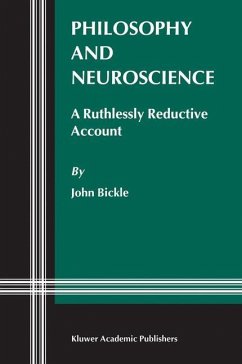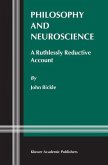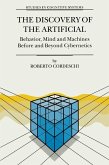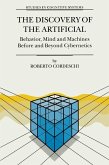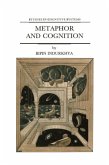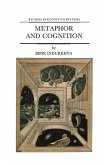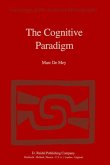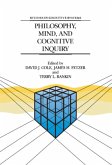Philosophy and Neuroscience: A Ruthlessly Reductive Account is the first book-length treatment of philosophical issues and implications in current cellular and molecular neuroscience. John Bickle articulates a philosophical justification for investigating "lower level" neuroscientific research and describes a set of experimental details that have recently yielded the reduction of memory consolidation to the molecular mechanisms of long-term potentiation (LTP). These empirical details suggest answers to recent philosophical disputes over the nature and possibility of psycho-neural scientific reduction, including the multiple realization challenge, mental causation, and relations across explanatory levels. Bickle concludes by examining recent work in cellular neuroscience pertaining to features of conscious experience, including the cellular basis of working memory, the effects of explicit selective attention on single-cell activity in visual cortex, and sensory experiences inducedby cortical microstimulation. This final chapter poses a challenge both to "mysterians," who insist that empirical science cannot address particular features of consciousness, and to cognitivists, who insist that addressing consciousness scientifically will require experimental and theoretical resources that go beyond those used in neuroscience's cellular and molecular core.
Bickle develops all scientific and philosophical concepts in detail, making this book accessible to specialists, graduate students, and advanced undergraduates in either philosophy or the empirical brain and cognitive sciences. Philosophers of science, mind, neuroscience, and psychology, neuroscientists working at a variety of levels, and cognitive scientists-or anyone interested in interactions between contemporary philosophy and science and the nature of reduction-in-practice that informs current mainstream neuroscience-will find discussions pertinent to their concerns.
Hinweis: Dieser Artikel kann nur an eine deutsche Lieferadresse ausgeliefert werden.
Bickle develops all scientific and philosophical concepts in detail, making this book accessible to specialists, graduate students, and advanced undergraduates in either philosophy or the empirical brain and cognitive sciences. Philosophers of science, mind, neuroscience, and psychology, neuroscientists working at a variety of levels, and cognitive scientists-or anyone interested in interactions between contemporary philosophy and science and the nature of reduction-in-practice that informs current mainstream neuroscience-will find discussions pertinent to their concerns.
Hinweis: Dieser Artikel kann nur an eine deutsche Lieferadresse ausgeliefert werden.
From the reviews:
"If you thought reductionism about the mind was dead, think again: you may find John Bickle's vigorously and powerfully argued Philosophy and Neuroscience: A Ruthlessly Reductive Account a real eye-opener. His guiding idea is that the proof of reductionism is in the track record of reductionist research strategies in neuroscience, in explaining mentality and behavior - and even qualitative consciousness itself. And Bickle does not disappoint: he serves up a veritable feast of reductionist success stories, from deep down in cellular and molecular neuroscience. Some of the details he describes will amaze, and perhaps also delight, you. Bickle's discussion is invigorating as well as philosophically sophisticated, and his knowledge of current research in neuroscience is impressive indeed. The writing is clear, brisk, and refreshingly straightforward, and the book brims with enthusiasm and optimism. This is the latest salvo from the reductionist side, and a mighty one it is! It may not win the battle outright for reductionism, but it is going to change the shape and terms of the debate to come. A must read for those interested in the issues of psychoneural reduction and reductionism, and highly recommended to anyone with a broad interest in the philosophy of mind and psychology." (Jaegwon Kim, Brown University)
"Bickle now practices metascience ... . a large part of the book consists of neuroscientific case studies. ... Bickle's experimental cases are fascinating and his book qualifies as a showcase of naturalism in the philosophy of mind. As such it deserves to be read by any philosopher with naturalistic leanings. ... Bickle has provided food for thought. ... It manifests a profound respect for empirical developments, and a healthy criticism of philosophical hobbyhorses and entrenched reasoning patterns. This makes the book worthwhile reading." (Huib Looren de Jong and Maurice K. D. Schouten, Philosophical Psychology, Vol. 18 (4), 2005)
"Bickle is writing for graduate students and professionals. ... Bickle's writing is patient and exceptionally clear when he explains the ins and outs of long-term potentiation at the cellular, chemical and genetic levels ... . the main audience for his book are professionals and advanced students in philosophy ... ." (Anthony Chemero, Minds & Machines, Vol. 17, 2007)
"If you thought reductionism about the mind was dead, think again: you may find John Bickle's vigorously and powerfully argued Philosophy and Neuroscience: A Ruthlessly Reductive Account a real eye-opener. His guiding idea is that the proof of reductionism is in the track record of reductionist research strategies in neuroscience, in explaining mentality and behavior - and even qualitative consciousness itself. And Bickle does not disappoint: he serves up a veritable feast of reductionist success stories, from deep down in cellular and molecular neuroscience. Some of the details he describes will amaze, and perhaps also delight, you. Bickle's discussion is invigorating as well as philosophically sophisticated, and his knowledge of current research in neuroscience is impressive indeed. The writing is clear, brisk, and refreshingly straightforward, and the book brims with enthusiasm and optimism. This is the latest salvo from the reductionist side, and a mighty one it is! It may not win the battle outright for reductionism, but it is going to change the shape and terms of the debate to come. A must read for those interested in the issues of psychoneural reduction and reductionism, and highly recommended to anyone with a broad interest in the philosophy of mind and psychology." (Jaegwon Kim, Brown University)
"Bickle now practices metascience ... . a large part of the book consists of neuroscientific case studies. ... Bickle's experimental cases are fascinating and his book qualifies as a showcase of naturalism in the philosophy of mind. As such it deserves to be read by any philosopher with naturalistic leanings. ... Bickle has provided food for thought. ... It manifests a profound respect for empirical developments, and a healthy criticism of philosophical hobbyhorses and entrenched reasoning patterns. This makes the book worthwhile reading." (Huib Looren de Jong and Maurice K. D. Schouten, Philosophical Psychology, Vol. 18 (4), 2005)
"Bickle is writing for graduate students and professionals. ... Bickle's writing is patient and exceptionally clear when he explains the ins and outs of long-term potentiation at the cellular, chemical and genetic levels ... . the main audience for his book are professionals and advanced students in philosophy ... ." (Anthony Chemero, Minds & Machines, Vol. 17, 2007)

